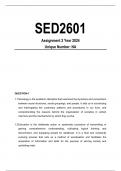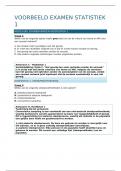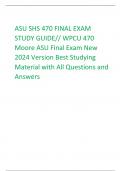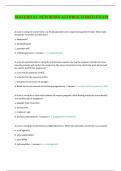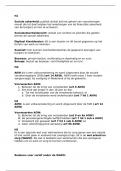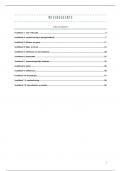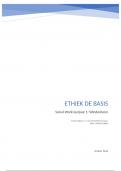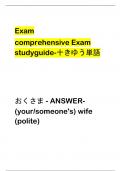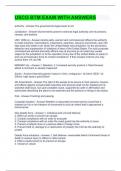Exam (elaborations)
SED2601 Assignment 2 Solutions 2024
- Course
- Sociology of Education
- Institution
- University Of South Africa (Unisa)
Boost your grade with the SED2601 Assignment 2 Solutions 2024! Easily tackle your assignments with clear and concise solutions. Study smarter and save time with this must-have resource. Order now to achieve academic success and reach your full potential!
[Show more]
